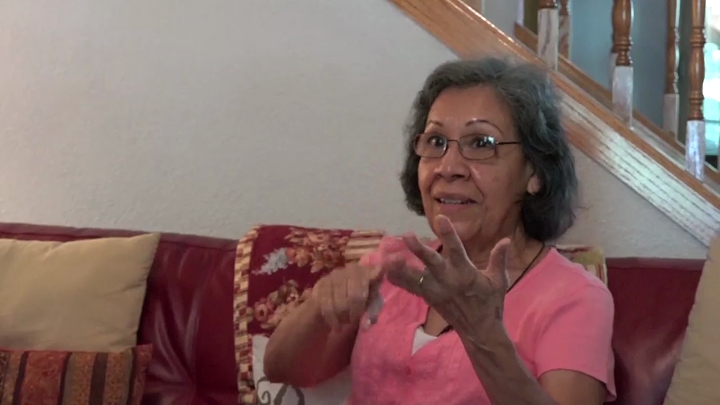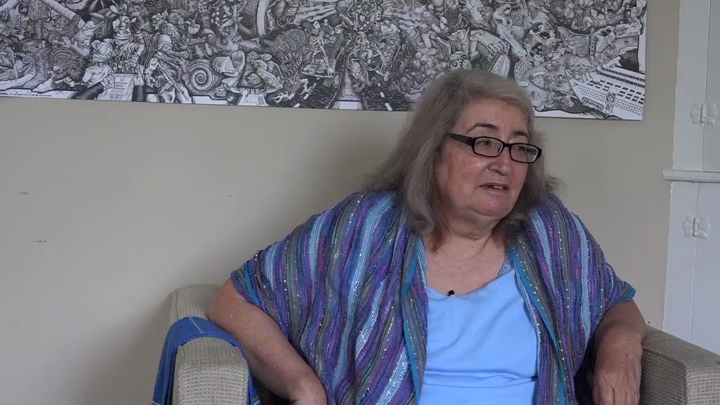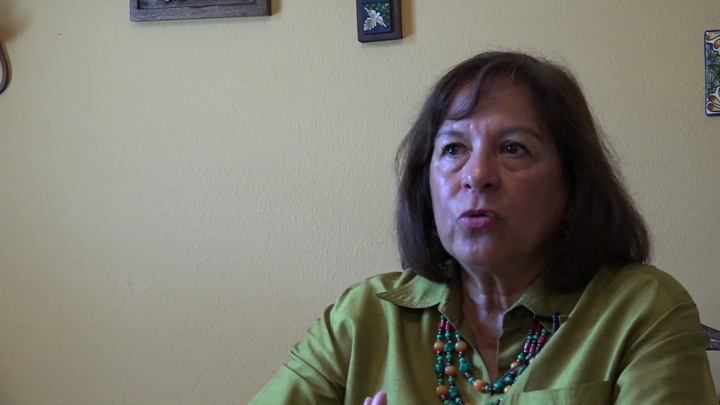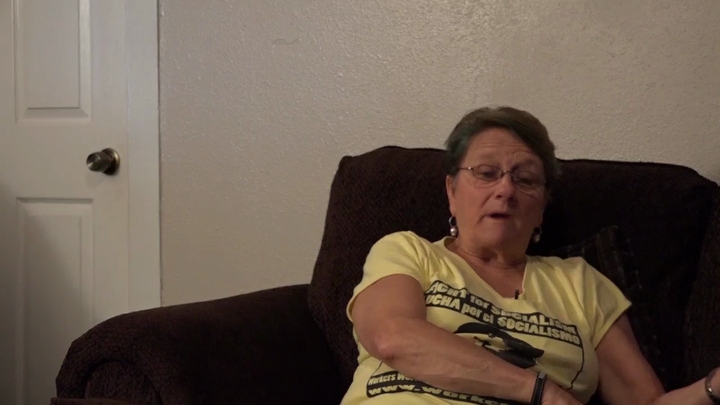Jimenez / Feminism and Organizing
sign up or sign in to add/edit transcript
Interviewer: Do you think that being a feminist informed your push to organize a community as a whole rather than doing institutionalized things? Maria Jiménez: I do not know if that is the case. You cannot separate when there is inequity. You have to fight for the creation of society that gives equality and rights to all people. I think here the concept is rights. It is a changing concept. It is not enshrined like the Declaration of Independence. It is a different type of rights that develop according to community need. The fight for equality of women is the fight for rights. Whatever the fight for equality it is the equality of rights. That is why I think article 1 of the universal declaration of human rights is the most radical of all the articles in the declaration of human rights. It states that all human beings are equal in dignity and rights. That is a very radical concept. So I see the fight and my feminist within that, that mean also fighting for equality of Mexican people, of African American people, people who are not privileged economically in a society if economics plays a role in denying that inequality, then we have to fight to equalize peoples economic equality. If religion does not work, then we have to fight that as well. It is really the guide. Feminism for me was always about the equality of women but also rights. Interviewer: One of the last question, what are some the labels you use in the present of past to define yourself? Maria Jiménez: I do not now. Well, I am a Mexicana because I was born in Mexico and have a strong Mexican identity. I am Chicana because I have grown on both sides. I will always say I am a gringa as well. People will say, “Why are you a gringa?” I say, “Well, I notice I have certain attitudes that are only- I have acquired- that are very much a part of the – one of the characteristics of the people in the United States.” I usually give the example of tolerance – the US is a very race conscious society in terms of always debating about race. We may never achieve race equality but it is always debating race. One of the things I learned it really condemns intolerance – you can it in the issue that happened in Orlando. The issue of intolerance is very much condemned in part of the culture. If I just go to my Mexican culture that is not the case. In Mexico, intolerance is not debated. There is no political conscious and in US it is. So that is how I define myself in terms of nationality but in terms of- I do not know what other labels you want me to talk about.
| Interview | Interview with Maria Jimenez |
| Subjects | Citizenship › Political Rights |
| Religion | |
| Geography › Geographic Disparities in Economic Growth or Decline | |
| Chicano Power › Chicano Power and Community Organizing | |
| Class and Status | |
| Gender and Sexuality › Feminism | |
| Gender and Sexuality › Women's rights | |
| Tags | sign up or sign in to add/edit tags |
| Interview date | 2016-06-13 |
| Interview source | CRBB Summer 2016 |
| Interviewees | Jimenez, Maria |
| Interviewers | Enriquez, Sandra |
| Rodriguez, Samantha | |
| Locations | Houston, TX |
| Duration | 00:04:11 |
| Citation | "Feminism and Organizing ," from Maria Jimenez oral history interview with Sandra Enriquez and Samantha Rodriguez, June 13, 2016, Houston, Civil Rights in Black and Brown Interview Database, https://crbb.tcu.edu/clips/4619/feminism-and-organizing, accessed February 25, 2026 |






